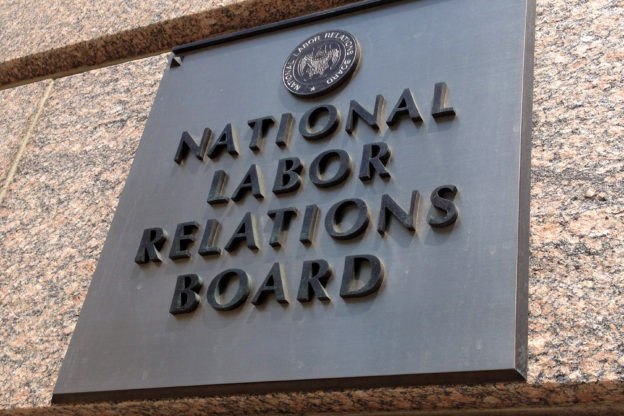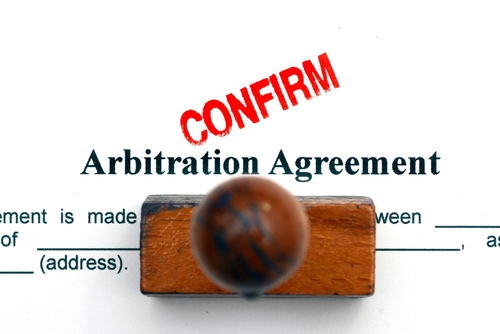 By Steve Gutierrez
By Steve Gutierrez
Most expect that the White House and federal agencies will take a more business-friendly approach than in recent years. Employers hope that will mean they can now look forward to a potential rollback of regulations and enforcement efforts that have stymied their business objectives. Yet when it comes to responding to union organizing campaigns and negotiating collective bargaining agreements, employers still face wide-ranging challenges. Here is my list of the top five ongoing challenges.
1. Affordable Care Act (ACA) Cadillac Tax
Many unions, such as the Teamsters, prioritize and bargain extensively over top quality, employer-paid health insurance. They often use it as a selling point to their members. Yet, the ACA’s 40 percent excise tax on workers with comprehensive insurance plans (the so-called “Cadillac tax”), set to be implemented in 2020, is seen by the unions as an affront to their hard-fought bargaining to obtain high quality health care for their membership.
In fact, reports show that unions, including the Teamsters, have actively lobbied members of Congress for a repeal of the Cadillac tax. Because health care reform has not yet passed, it may be unlikely that relief from the Cadillac tax is forthcoming anytime soon.
This opens the door for alternate bargaining tactics over health care plans and benefits. Economics can be based on the ultimate cost to the employees/members, when factoring in the tax. This issue remains a challenge for both employers and the union and can change the overall approach to structuring the economic package during contract negotiations.
2. Micro-units
In 2011, the NLRB issued its Specialty Healthcare decision permitting unions to establish bargaining units that include only a small fraction of a workforce. For example, in 2014, the Board certified a micro-unit of cosmetic and fragrance salespersons working at a Macy’s department store rather than requiring all employees at the store (or even all salespersons at the store) to make up the bargaining unit. The Board authorized the micro-unit by finding that the cosmetics and fragrances salespersons were a readily identifiable group and shared a community of interest. The Board also found that other Macy’s employees did not share an overwhelming community of interest with the cosmetics and fragrances employees, and prior NLRB cases involving the retail industry did not require a wall-to-wall unit.
These micro-units can make union organizing easier as they do not require a majority of the historical “wall-to-wall” bargaining units to vote in favor of the union. For example, a unit of only nine employees needs just five to vote “yes” and the union has its foot in the door with that employer. And organizing on that micro level can more easily go unnoticed by employers. Micro-units can also result in an employer having to negotiate with multiple unions affecting small segments of its workforce, and the headaches involved with administering varying contracts.
Numerous efforts are underway in the current administration to do away with micro-units. Current NLRB Chairman Phillip Miscimarra disagrees with the Specialty Healthcare standard for determining an appropriate bargaining unit, raising chances that the Board will abandon the approval of micro-bargaining units. However, Miscimarra has announced that he will leave the Board when his term expires in December 2017. Despite his impending departure, it is possible that a majority-Republican Board will reverse course on micro-units.
In addition, this past Spring, Senate Republicans introduced (again) the Representation Fairness Restoration Act (S. 801) which would do away with micro-units. That bill has been assigned to the Senate Health, Education, Labor, and Pensions committee where it is one of 250 bills currently being considered by the committee.
Until the law or Board precedent is changed, micro-units remain a challenge for employers. But because a more employer-friendly Board might rule against a micro-unit, it becomes vastly important to challenge proposed bargaining units and any potential outlier unit members. Increased pressure on the Board on this issue should be a continued focus.
3. Transparency with Employees/Members
Unions are becoming quite savvy in communicating with their members and potential members. Union leaders are increasingly focusing on being more transparent with their members during the bargaining process. They continue to build strong communications networks centered on social media and other online platforms, with development of mobile apps and company-specific websites, Facebook pages, and Twitter accounts.
To stay ahead of and counter union communications, employers facing a union organizing campaign or in the midst of negotiating a contract should institute and invest in more robust communication strategies with their employees as well. Social media and other online communications boards are essential in getting the company’s message out, especially to millennials and other employee demographics who will seek their information from such sources. But, be aware that in late 2014, the NLRB ruled that employees may presumptively use a company’s email system for statutorily protected communications as long as it takes place during nonworking time and does not interfere with productivity. That Board decision, Purple Communications, is on appeal in the Ninth Circuit Court of Appeals but remains a challenge for employers until such time it is reversed or overturned.
4. New Technology in the Workplace
As more technology comes into the workplace and robots threaten to replace workers, collective bargaining will likely face these issues head on. Just as outsourcing used to be (and in many cases, still is) a sore spot for unions, workplace automation is a similar threat to jobs and future expansion.
One example involves the Teamsters who recognize that autonomous driving vehicles are becoming a reality. The Teamsters are urging lawmakers to prioritize workers and safety when crafting legislation and rules regarding autonomous vehicles. Their concerns likely spill over into their contract negotiations as well.
As workplace technology accelerates, discussions of the use of such technology will likely become key in any bargaining where robots and automation are a possibility. Anticipating that topic, and the potential impact on workers, opens the door for employers to bargain for potential gains and/or trade-offs in their favor when the union opposes or seeks to limit autonomous technology.
5. Favorability of Unions on the Rise
According to a January 2017 Union Favorability Survey by the Pew Research Center (PRC), 60 percent of respondents viewed labor unions favorably while only 35 percent viewed unions unfavorably. This is the highest union favorability rating compiled by the PRC since March of 2001 and only the second rating at or above 60 percent since 1985.
Employers should be aware of this rising trend, especially when communicating with employees during an organizing or bargaining campaign. Opposing and criticizing unions too strongly could backfire so communications and strategies should be formulated to focus on issues, rather than the institution of unions and union membership itself.
Responding to organizing campaigns and preparing for collective bargaining is always a challenge but thinking ahead about these top five issues, and investing in some preventative training and education for managers, can help you manage the process and achieve a favorable outcome.










 By
By 



